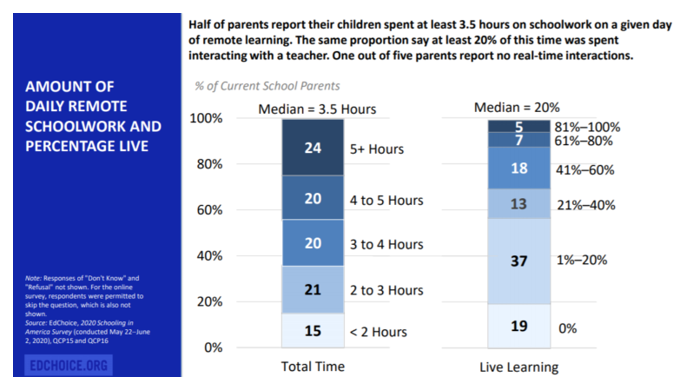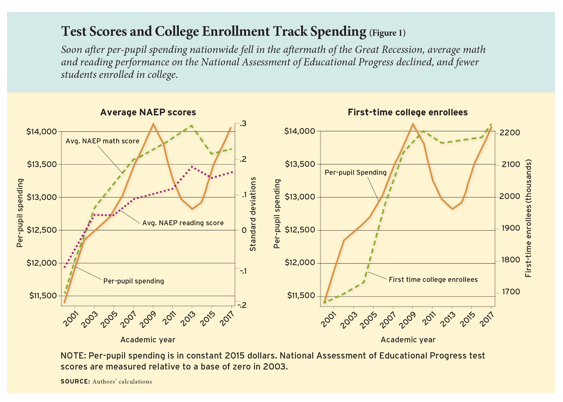
As schools continue to wrestle with reopening plans and what seems like the shortest summer break on record comes to an end, researchers have continued to churn out reports and surveys related not only to COVID-19 but to charter schools and per-pupil spending as well.
EdChoice, a school choice advocacy and research organization based in Indianapolis, released a survey on parent opinions regarding education during the pandemic.
According to the researchers, nearly 60% of parents with a child at risk for coronavirus complications said they would seek remote learning options compared to 39% of parents with a child not at risk. Additionally, Black parents were more likely to be seeking remote learning options than white parents, a finding in line with a previous survey conducted by Education Next that showed Black parents found greater satisfaction with remote learning than white parents.

A study by Ian Kingsbury from Johns Hopkins University and Robert Maranto from the University of Arkansas examined the impact of charter school regulations, finding that some regulations produce negative effects. Instead of protecting consumers, Kingsbury and Maranto concluded, bad regulations sometimes simply protect insiders.
According to the researchers, states with a high number of regulations like Texas, Ohio and Indiana saw Black- and Hispanic-run charter school applicants denied at far higher rates than white or Asian charter applicants.
“As states like California and Pennsylvania mull strengthening their charter regulatory regimes, they’d do well to take heed to ensure that people of color are stewards and not subjects of the charter schooling movement,” the researchers wrote. An Education Next article gives a good summary of the study.
Finally, a study by C. Kirabo Jackson and Cora Wigger from Northwestern University and Heyu Xiong from Case Western Reserve University, summarized in Education Next, found the Great Recession negatively impacted student achievement and college attendance. The researchers argue that a decline in education budgets because of the recession may have caused these declines.

The researchers also found that budget cuts impacted Black students more than white students and may lead to a widening of achievement gaps. They note, however, that “A particular concern is that it is changes in families’ economic circumstances due to the recession, not reductions in school spending, that account for the decline in outcomes.” Indeed, the college attendance rate began declining in 2006, years before budget cuts to per-pupil spending.


